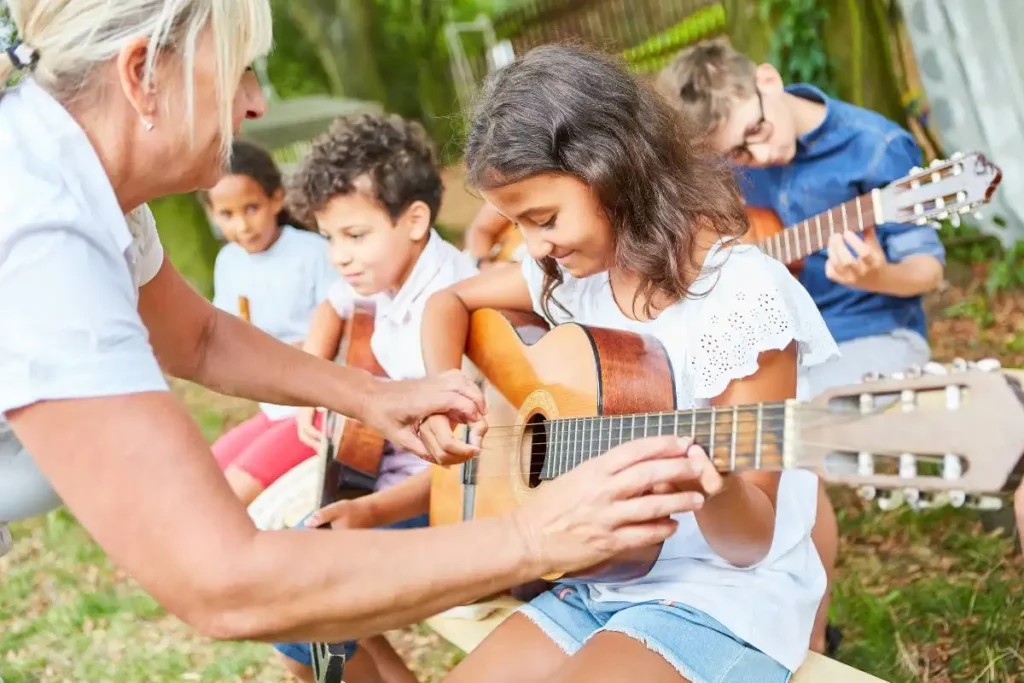When looking for an alternative to traditional summer camp for children with autism, it is important to consider the criteria for autism-friendly programs. Here are some key factors to keep in mind:
- Trained Staff: The program should have staff members who are trained in working with children with autism. They should understand the unique needs of each child and be able to provide appropriate support.
- Structured Activities: Programs should offer structured activities that are tailored to the individual needs of each child. This can include sensory-friendly activities, social skills training, and more.
- Small Group Sizes: Smaller group sizes can help ensure that each child receives the attention and support they need. This can also help reduce sensory overload and other challenges.
- Safe and Supportive Environment: The program should provide a safe and supportive environment for children with autism. This can include sensory-friendly spaces, quiet areas for relaxation, and more.
Benefits of Tailored Activities
Tailored activities can offer many benefits for children with autism. Here are some examples:
- Improved Social Skills: Social skills training can help children with autism improve their ability to interact with others and form meaningful relationships.
- Reduced Anxiety: Sensory-friendly activities and other tailored interventions can help reduce anxiety and other challenging behaviors.
- Increased Confidence: When children with autism can participate in activities that are tailored to their needs, they can experience a sense of accomplishment and increased confidence.
- Opportunities for Growth: Tailored activities can provide opportunities for children with autism to learn new skills and explore their interests in a safe and supportive environment.
Specialized Autism Programs
Summer camps can be overwhelming for children with autism, but there are alternative programs that cater to their specific needs. Specialized autism programs are designed to provide a safe and supportive environment for children with autism to learn, grow, and have fun. Some of the most popular specialized autism programs are therapeutic summer programs and skill-building workshops.
Therapeutic Summer Programs
Therapeutic summer programs for children with autism provide a structured environment where they can learn and practice social skills, communication, and self-regulation. These programs offer a range of activities such as music therapy, art therapy, and sensory integration therapy. Kids Like Me – Village Glen Camp in California is a specialized social skills autism summer camp for children aged 6 – 14. The camp focuses on developing social skills, communication, and self-regulation through a variety of activities such as music therapy, art therapy, and sensory integration therapy.
Skill-Building Workshops
Skill-building workshops are designed to help children with autism develop new skills and improve existing ones. These workshops offer a range of activities such as cooking, gardening, and computer programming. Camp Starfish in Massachusetts provides a 1:1 camper-to-counselor ratio in a safe and barrier-free environment. The camp offers a variety of activities such as arts and crafts, swimming, and outdoor adventures. The camp emphasizes enjoyment and recreation, making it a great option for children who want to learn new skills while having fun.
Family-Centered Activities
Families of children with autism can engage in various activities that promote learning, socialization, and fun. These activities can be done at home or in the local community. Here are some examples:
Home-Based Projects
- Arts and Crafts: Families can engage in arts and crafts projects that promote creativity and fine motor skills. Examples include painting, drawing, and making jewelry.
- Cooking: Cooking with children can be a fun and educational activity. Families can teach children about nutrition, measurement, and following directions. Simple recipes like smoothies, salads, and sandwiches are great options.
- Gardening: Gardening can be a therapeutic activity for children with autism. Families can grow vegetables, fruits, or flowers. Children can learn about plant life cycles, soil, and weather.
Local Community Events
- Museums: Many museums offer special programs for children with autism and their families. These programs are designed to be sensory-friendly and inclusive. Families can learn about art, science, and history.
- Parks: Parks are great places for families to enjoy nature and physical activity. Families can have picnics, play ball, or go for a walk. Some parks offer accessible playgrounds and trails.
- Libraries: Libraries offer a variety of programs for children with autism and their families. These programs include storytime, crafts, and sensory-friendly events. Families can also borrow books and movies for free.
Educational Alternatives
Parents of children with autism may be interested in educational summer programs that offer a combination of learning and fun. These programs can help children develop new skills, explore their interests, and build social connections. Here are some educational alternatives to traditional summer camps for children with autism:
Museum Programs
Many museums offer summer programs designed for children with special needs. These programs can provide a safe and supportive environment for children to learn about science, history, and art. For example, the Museum of Science and Industry in Chicago offers a summer camp for children with autism that focuses on hands-on science experiments and activities. The camp is staffed by trained professionals who have experience working with children with autism.
Science and Tech Camps
Science and technology camps can be a great option for children with autism who have a passion for STEM subjects. These camps can provide opportunities for children to learn new skills, work on projects, and collaborate with peers. For example, STEM Virtual Summer Camp is a two-week program for children with high-functioning autism, ADHD, or other related conditions. The camp offers a variety of age-appropriate experiments and activities to keep children engaged and learning.
Outdoor and Nature Experiences
Children with autism can benefit greatly from outdoor and nature experiences. These kinds of activities provide a sensory-rich environment that can help to reduce stress and anxiety, improve mood, and increase physical activity. Here are some outdoor and nature experiences that can be great alternatives to traditional summer camps for children with autism.
Animal-Assisted Activities
Spending time with animals can be a great way for children with autism to build social skills, improve communication, and reduce anxiety. Animal-assisted activities can include pet therapy, horseback riding, and even swimming with dolphins.
One great program is Camp Hoofprint, which offers horseback riding lessons and other equine-related activities for children with special needs. Another option is Dolphin Discovery, which offers interactive dolphin encounters that can be a great way for children with autism to experience the joys of the ocean.
Gardening and Farming Initiatives
Gardening and farming initiatives can be a great way for children with autism to learn new skills, build confidence, and connect with nature. These activities can include planting and caring for a garden, raising chickens or other farm animals, and even learning how to cook with fresh ingredients.
One great program is Sprout Creek Farm, which offers a variety of farm-based activities for children with special needs. Another option is The Edible Schoolyard Project, which offers gardening and cooking programs for children of all abilities.







